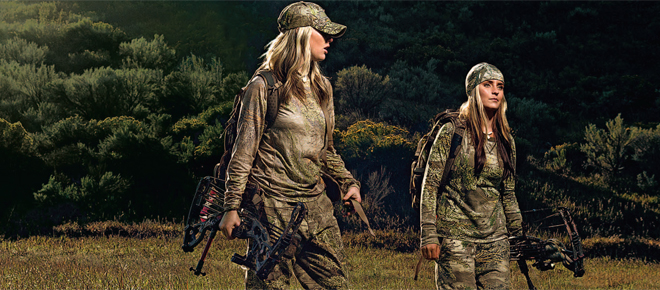Hipsters are going hunting
They’ve already got the plaid shirts and deer antlers. Hunting is the next step.
Braxton Bruce/Getty Images
Share

On a cool evening in November, a group of twentysomethings set out from a farmhouse near Creemore, Ont., and shot a deer. They carried the animal back to the house with a tractor and strung it up for field dressing, first making an incision to carefully remove the intestines and stomach. They then spent the weekend butchering the carcass into cuts of venison and making sausages to stock their freezers.
This was the first hunt for some in this group from Toronto—and they didn’t want others to know. No one interviewed would go public. One woman feared that associating her name with killing animals might harm her boyfriend’s vegetarian business. Another thought it could make it harder to get a job in the tech sector.
The aesthetics of hunting have been hot for some time: lumberjack shirts and hunting caps as fashion, taxidermy and deer antlers as decor. All that was missing was the hunting. Now, a growing number of people who don’t fit the typical hunter profile are turning to the activity. Killing wild animals to procure your own meat is, after all, a natural next step for locavore types who’ve been growing vegetables, keeping backyard chickens and fermenting their own kombucha.
When you hunt your own game to make Canada goose prosciutto, as Drake Larsen of Iowa did a few Wednesdays ago after work, you have the ultimate alternative to the factory-raised meats typically found in the grocery cooler. “We never buy a package of ground beef. Ever,” said Larsen, who recently finished grad school and works by day at an organization promoting sustainable agriculture.
According to the American Sportsfishing Association, the number of people interested in hunting and fishing is rising in the U.S., and a new cohort of young people, women and suburbanites is getting involved. Across the country, the stats show there are more hunters today than there were five years ago. “It’s not just the boys going hunting,” said Chris Benson, who coordinates a program for Ducks Unlimited Canada that introduces new people to hunting. “It’s women, it’s environmentalists, it’s people from large urban centres who just want hands-on outdoor experience.”
Gourmet hunters like Larsen look to cult figures such as Hank Shaw, a former line chef who hunts and writes game cookbooks such as Duck Duck Goose, with recipes for the likes of duck heart tartare. “Honest food is what I’m seeking,” writes Shaw, encapsulating the mentality of the new hunter.
Kristopher Winiarski, a graduate student from Rhode Island, was motivated to take up hunting after meeting other young hunters and being exposed to Michael Pollan’s industrial-food-system exposé, The Omnivore’s Dilemma. “Prior to that, I was oblivious to where my meat was coming from.” Now he owns a gun, hunts regularly for wild fowl, has a bird dog as a pet (to help him hunt) and transforms what he catches into dishes such as goose kielbasa and sausage with fresh garlic, herbs and wine. Nowhere are the powdered spice concoctions that often flavour conventional meats. And he always makes sure to hang his game to let the microbes tenderize the meat, just as Julia Child suggested.
But learning to cook wild meats is a skill, particularly because game has less fat and is therefore less forgiving. “The first duck I ever shot I overcooked and it was terrible,” he said. Also, the hunting part is a big investment—you must enrol in the government-required course, get a licence, buy a gun, warm clothes, maybe some decoys and hip-waders. If you want to prepare the meat yourself rather than take it to a meat locker for processing, as is typical with conventional hunters, you’re looking at more gear. Larsen in Iowa has kitted out his garage with a gambrel to hang an animal for dressing, as well as a salvaged kitchen counter for processing.
And it’s time-consuming. The woman who helped butcher the deer that weekend in Creemore spent hours outside, removing the silver skin and fat from the carcass. She hopes all the work will be worth it. They weren’t able to hang the deer and let it age and develop flavour. “We didn’t have tons of time, because we had to get back to work,” she said.